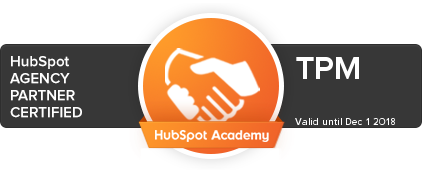Is SEO dead? Or just in need of a strategy update?
The recent leak that exposed how Google ranks search results has marketers abuzz about the future of SEO. Has Google been lying to us about the value of SEO this whole time? Should we just give up on optimizing for keywords and linking strategically to other content?
The initial panic was understandable. After all, Google has been at the top of the search world for what feels like forever. The revelations in the leaked data felt like a betrayal. And frankly, predictions of SEO’s downfall have been around for a while. Maybe this is really the end. But I don’t think so.
SEO and Me: A Bumpy Start
SEO and I haven’t always gotten along. My first introduction to the idea of keywords was at a job that offered little compensation and even less training. I wrote web copy for businesses and was one of the most in-demand freelancers at the company in question. For every page I wrote, there was a little box off to the side where I was supposed to type keywords for that page — but no one ever explained what they were. I dutifully typed in random words related to the topic, but those words didn’t necessarily appear in my copy.
Working at better agencies, I’ve learned a lot since then — through training, experience, and the occasional battle with a colleague who managed SEO. (I often felt his love of long-tail keywords clashed with my desire to write flowing copy unencumbered by the repetition of random phrases.)
But I’ve been a marketing professional for a while now, and things have changed. A lot. Google makes an average of 13 changes per day to its search algorithms, and that’s before you consider that it hasn’t exactly been forthcoming with how it ranks content. So is SEO still relevant? Or can I finally sit back and write whatever flows into my mind without worrying if my content will please the Google gods?
Google Search Isn’t What It Used to Be
Optimizing your content to rank in search results isn’t easy when you’re not totally sure what you’re optimizing for. Leak drama aside, there have been some fundamental shifts in Google search-land that might make you question the value of SEO.
Zero-Click Content
Somewhere along the way, the folks at Google realized they could increase their share of those sweet, sweet advertising dollars if, instead of sending users to pages that would answer their questions, they just published the answer on their own site.
It’s called “zero-click content,” and it rewards people and organizations with the most valuable answers to search queries by posting their information as featured snippets on Google’s search results page. The benefits of earning this top slot are a discussion for another day, but “more clicks” isn’t one of them. Does SEO still matter if your goal is to climb search results rankings to increase traffic when getting to the top means Google poaches a bunch of would-be site visitors for itself?
Changing Google Use Cases
Google isn’t the only one making changes that affect SEO. The way we use Google is evolving too. Early Google searches were largely transactional or navigational — users were trying to find a specific product (that they intended to purchase) or a particular site (that they wanted to visit). Today, Google is a discovery tool. We use it to learn and answer questions, especially when we use it via voice assistants. (“Hey Google, how do most people use Google searches?”)

But SEO Value Persists
The rise of Siri and Alexa and Google’s insatiable desire to update search tools are not enough to spell the end for SEO. Search engine optimization isn’t going anywhere, regardless of how much I might wish for its departure. Here are four reasons why I’m sure I’m still stuck with my old nemesis.
1. Searches (and Results) are Increasing
Google fields 5.9 million search queries per minute. People are turning to the search giant in record numbers for answers to their questions — but there are also more sites competing to be the answer than ever before. The Google search engine results page (SERP) is a crowded field; if you want to get noticed, you need to optimize.
2. Organic Search is an Affordable Way to Generate Leads
Paid ads that drive people to your site can be effective, and LinkedIn is becoming the go-to destination for social media marketing. But a staggering 93% of internet traffic is driven by Google. Next time you ask yourself if SEO still matters, consider if you’re ready to drop 93% of your site visitors. Organic traffic is the number one driver of website visitors and one of the most affordable forms of lead generation.
3. SEO is About More Than Search
Researching what keywords are trending isn’t just about shoehorning random words and phrases into your copy. Understanding what people are searching for gives you a free peek at your target market’s pains, challenges, and goals. SEO still matters because it helps you connect with your audience and deliver a superior user experience.
4. It’s Where Everyone Is
Billions of searches drive the vast majority of internet traffic. That’s Google’s search engine. If you’re still questioning the value of SEO, let me put this another way: why would you ignore a platform filled with people actively searching for solutions? Sure, you can try to sell to people who don’t realize they need what you’ve got — but why would you bother when there are so many people virtually telling you that your product could help them?

The Wild Card: SEO and AI
Google dominates the search engine world right now — but what of AI? A study by Aberdeen Strategy & Research asked professionals across a range of industries how they expect to find online information in the future, and 42% predicted they’d use AI-powered chatbots while only 24% thought they’d still rely on search engines. In fact, many already felt AI could deliver answers faster than Google.
Are the robots coming to eat Google’s lunch? Maybe. Does that mean you should stop caring about SEO? Probably not.
AI tools are gaining popularity quickly, but they’re still also plagued with a lot of fundamental flaws:
- Chatbots sometimes make up information
- There’s still an unhealthy amount of bias in AI systems
- AI tools aren’t great at problem-solving
- They can answer questions — but won’t provide the source of the information (meaning you can’t verify its accuracy)
The fundamental principles behind SEO aim to build trust and add value. Even if ChatGPT replaced Google as the top search tool tomorrow, those things would still matter. Yes, we’ll all have to tweak our strategy to adapt to the nuances and quirks of AI information searches — but as we’ve established, fine-tuning SEO strategy has become a fact of life.
Polishing Your SEO Strategy
So SEO still matters, but the rules for SEO are continually changing. What’s an intrepid marketer like yourself supposed to do?
I can’t offer guidance specific to Google’s algorithms or future AI searches — no one can. But here are a few general guidelines that can help you win the race to the top of search results:
- Focus on user experience. If you’re still randomly stuffing keywords into your copy, for the love of all that’s good, stop.
- Consider search intent. Most Google searches fall into one of three categories:
- Transactional (the searcher is planning to buy something)
- Informational (the searcher is looking for information on a specific topic)
- Investigation (the searcher is comparing options, often in advance of a purchase)
- Embrace your niche. Don’t try to rank for everything — you won’t succeed. Establish yourself as an expert in a more focused field. You’ll have fewer competitors in search results, and your credibility will grow.
- Educate your audience. Most Google searches today are not transactional. Your audience is searching for answers, not products to purchase. Create content that delivers value and helps them solve their problems — it will help you build trust with leads before they ever contact you.
- Make multimedia searchable. Audio and video content are playing a big role in marketing. Don’t let all the effort you spent creating those assets go to waste because they don’t show up in search results.
- Pique their interest. Build content that Google can’t necessarily condense into a short blurb so there’s a reason for people to click through to your site, rather than just reading the answer to their query in search results.
- Optimize for voice and long-tail searches. As much as I hate a long-tail keyword, people are searching in full questions — not just one or two words. Including those questions (and their answers) in your content boosts your odds of topping search results.
- Stay current. Once again, in case you haven’t been paying attention, Google search is continually evolving, as is the way people use it. Stay current on new technologies like artificial intelligence and their effect on SEO trends.
Hone Your SEO Strategy with TPM
The team at TPM has more experience than we’d like to admit in all aspects of product and content marketing. If you’d like some help boosting your lead-generation strategy (with SEO or other tactics), our team is here to help. Check out our Ultimate Lead-Generation Kit for a collection of free tools or contact us to discuss your needs.



